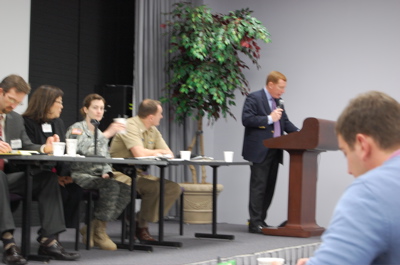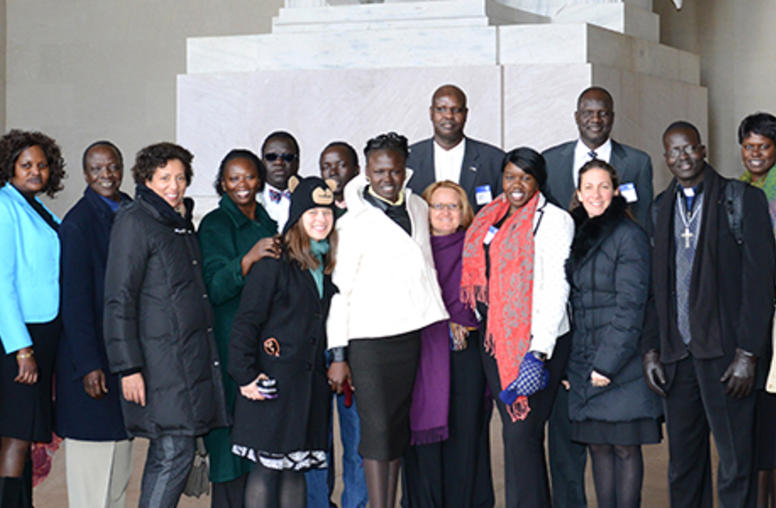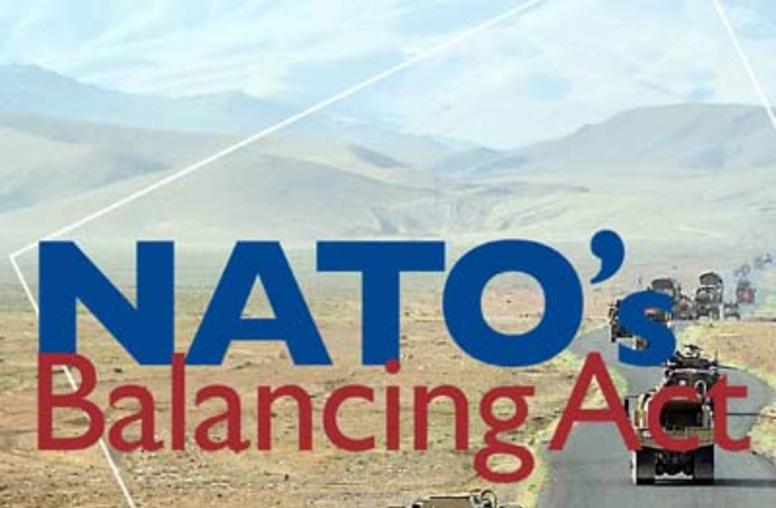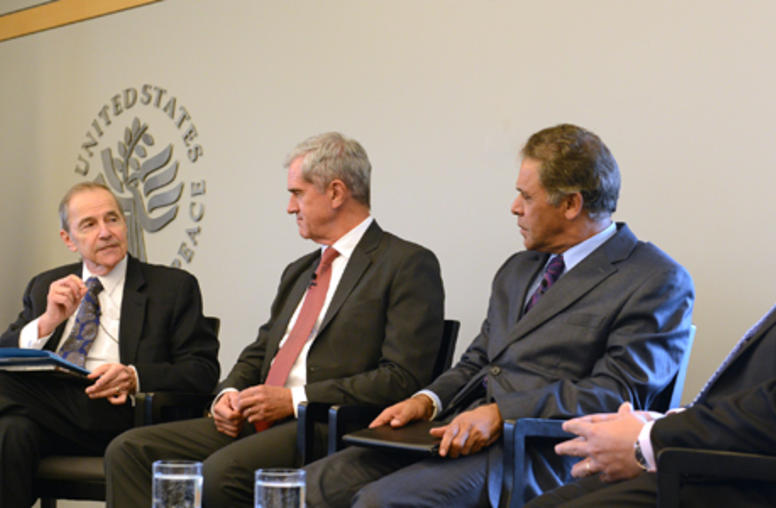On January 13-15, 2009 USIP conducted a SENSE simulation for Interagency participants at George Mason University’s Arlington campus in partnership with the Institute for Defense Analyses (IDA) and Mason’s Peace Operations Policy Program.
On January 13-15, 2009 USIP conducted a SENSE simulation for Interagency participants at George Mason University’s Arlington campus in partnership with the Institute for Defense Analyses (IDA) and Mason’s Peace Operations Policy Program. Fifty-five individuals received the training. Several USG organizations were represented, including the Joint Chiefs of Staff J8/Warfighting Analysis Division, OSD-Policy, USAID, OSD-Program Analysis and Evaluation, US Department of Justice/International Criminal Investigative Training Assistance Program, 4th Civil Affairs Group/Marine Forces Reserve, US Navy Directorate for International Engagement, US Department of State (Bureau of International Narcotics and Law Enforcement Affairs, Office of the Coordinator for Reconstruction and Stabilization, and the Bureau of International Organization Affairs), the National Geo-Spatial Intelligence Agency, and the Director of National Intelligence/National Counterterrorism Center.
During their work in the field and at home, USG Interagency staff members need to be able to interact effectively with a wide array of actors. Therefore, USIP believed that participants would benefit through interactions with individuals employed by international and nongovernmental organizations and the business community engaged in post-conflict stability operations. Participants from these sectors included staff from the International Foundation for Election Systems, International Organization for Migration, WorldVision, Blackwater USA, McKellar Corporation, Emmons Group, and Airserv International.
The simulation was highly successful and feedback from participants was very positive. Some excerpts from that feedback is included below:
“My participation in the SENSE exercise benefited me both personally and professionally in understanding the critical importance of interagency coordination in achieving the goals of sustainable growth and preventing state failure.”
 “I learned a great deal about how the human dynamic came into play in formulating policies between private sector, government, and international groups.”
“I learned a great deal about how the human dynamic came into play in formulating policies between private sector, government, and international groups.”
“The simulation helped me put myself in the shoes of players with different concerns than those I typically represent.”
“SENSE is unique, and gives me a better idea about how interagency training can be done; potentially very promising for DOD to sponsor for PRT, civilian expeditionary workforce, or support to CRC.”
“I work in an interagency bureay of the State Dept (S/CRS) and this simulation made me realize the importance of good communication, but also the complexity of factors that go into causing a certain change.”
“The interaction with professionals of varying backgrounds and interests was a personal highlight.”
“It helped show a picture of the effect bilateral relationaships have on progress. As a Program Officer in charge of a post-conflict country I realized the effect of my actions, whether good or bad, has on the country writ large.”
“It helps develop a broader understanding of the complexities of nation-building.”
This simulation was the first in a series that USIP intends to conduct in order to provide the Interagency community in DC with the benefits of participation in SENSE. This series of simulations is a part of a collaborative project with IDA and OSD to expand the capability of SENSE further, and to enhance the scenarios to include challenges directly relevant to Afghanistan. More specifically, the modified version will include regional actors and planting seasons, the latter because we are significantly altering the fictitious country’s economy—from an industrialized to an agricultural one.



